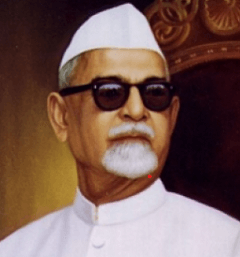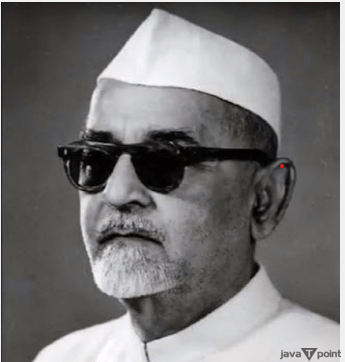Dr Zakir Hussain
Zakir Hussain is a luminous symbol of brilliance, enlightenment, and visionary leadership, etching an extraordinary legacy in India's chronicles. Revered for his unwavering dedication to education, secularism, and the forging of a united nation, Hussain's influence traversed the realms of academia and politics. His life's narrative mirrors a seamless fusion of erudition and statesmanship, etching his name as an esteemed and cherished figure in India's historical tapestry. AboutZakir Hussain was born on 8 February 1897 in Hyderabad, India. He was the first Indian Muslim to hold the very large ceremonial position of President of India. His promotion of secularism drew criticism from certain Muslim activists. In response to the call from nationalist leader Mahatma Gandhi for Indian youth to distance themselves from government-backed establishments, Husain acted by co-founding the Muslim National University in Aligarh. He later relocated the university to New Delhi and assumed the role of vice-chancellor from 1926 to 1948. One of the most prioritized events he experienced in his life was the educator or teacher role. He strongly believed that education is only the path to success and development. Amidst critique from certain factions within the Muslim community, Hussain's commitment to nurturing secularism shone brightly, underscoring his unwavering resolve to shape an all-encompassing and cohesive India. Zakir Hussain co-founded the Muslim National University in Aligarh in response to Gandhi Ji's call. This institution later moved to New Delhi and became proof of its commitment to providing quality education while instilling the values of nationalism and unity among its students. He served as its vice-chancellor from 1926 to 1948. Hussain transformed the university into a hub of academic excellence and intellectual discourse. He did not stop his vision from extending the confines of educational institutions; he also played a pivotal role in shaping India's political scenery. His ascension to the presidency of India in 1967 signified a pivotal role in the nation's history. 
Early LifeHussain was born in Hyderabad in 1897 and was of Afridi Pashtun descent, his forefathers having settled in Qaim Ganj in the Farrukhabad district of modern Uttar Pradesh. His father, Fida Husain, moved to Deccan and established a successful career in Hyderabad. Zakir was home-schooled in the Quran, Persian, and Urdu. He had his primary school education at the Sultan Bazaar school in Hyderabad. He became a part of the Muhammadan Anglo-Oriental College in Aligarh. Subsequently, he enrolled in the Lucknow Christian College, intending to pursue a medical degree, enrolling in the Bachelor of Science program. Unfortunately, an episode of illness necessitated a pause in his studies, and a year later, he resumed his education at Aligarh College. CareerDr Hussain joined the Muhammadan Anglo-Oriental College in Aligarh, a renowned institution known for its promotion of modern education among the Muslim community. Later, he transitioned to Lucknow Christian College, where he pursued a Bachelor of Science degree in preparation for medical career guidance. However, his academic pursuits were temporarily stopped by an illness. Undeterred, he resumed his studies at the Aligarh College after recovering. Hussain's perfect impact on society came to people's minds when he responded to Mahatma Gandhi's call to Indian youth. Alongside, he also founded the Muslim National University in Aligarh. This institution not only provides a quality education but also nourishes the young mind with the idea of nationalism. This initiative underscored Dr. Hussain's commitment to creating a harmonious and inclusive India. He handled the university with universal excellence. He mastered secularism, facing criticism from some quarters of the Muslim community, and stood as a symbol of unity and tolerance. His career took the biggest turn when he assumed the role of President of India in 1967. This moment carried profound importance in the support of the nation's history. During his presidency, Dr. Hussain exhibited an unshakable dedication to social justice, celebrating cultural diversity, and promoting international cooperation. Dr. Hussain's poised and diplomatic demeanor elevated India's prominence on the world platform and reinforced its diplomatic alliances. His career and life continue to inspire youth generations. His evolution from a determined student to an esteemed educator, from a forward-looking leader to a poised statesman, encapsulates the core of his impact. His heritage serves as a reminder that education, tolerance, and unity form the fundamental pillars of advancement for every nation. Vice-Chancellor of Aligarh Muslim UniversityOne of the understandable chapters of Dr. Hussain's life was his tenure as the Vice-Chancellor of Aligarh Muslim University (AMU) from 1948 to 1956. During this period, he worked effortlessly to modernize the university's curriculum, infrastructure, and administration. He strived to create an environment where academic excellence is the top priority and cultural diversity and social harmony could flourish. Under his leadership, AMU underwent significant advancements that laid the foundation for its continued growth as a leading educational institution in India. Diplomatic ExcellenceDr. Zakir Hussain's contributions extended beyond education. His diplomatic thinking highlighted his commitment to fostering global understanding and cooperation. He was India's ambassador to various countries, including the Soviet Union and the United States. His diplomatic efforts helped strengthen India's international relations and showcased the country's commitment to peace and mutual respect. The First Citizen of IndiaIn 1967, Dr. Zakir Hussain was elected as the third President of India, becoming the first Muslim to hold the esteemed office of pride. As President, he embraced his role as a remarkable figure and championed the principles of secularism, pluralism, and social justice. A deep connection with the people marked his presidency, as he continued to engage with educational institutions, civil society, and various communities, fostering a sense of unity in diversity in India. ConclusionThe narrative of Zakir Hussain's life stands as an illuminating light bulb for a world dedicated to inclusiveness and other regards. His heritage prompts us to adopt education as a catalyst for societal change, secularism as a route to togetherness, and diplomacy as a method for worldwide agreement. While commemorating his accomplishments, we should also take to heart his call for harmonious coexistence and continue his heritage to construct a more promising tomorrow, encompassing everyone.
Next TopicUrvi Singh
|
 For Videos Join Our Youtube Channel: Join Now
For Videos Join Our Youtube Channel: Join Now
Feedback
- Send your Feedback to [email protected]
Help Others, Please Share









